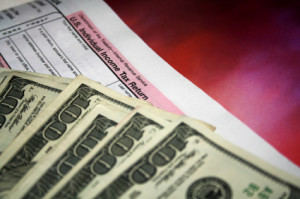 If you’re stressing about holiday bills and other year-end expenses, the following suggestions might help you have a better 2014:
If you’re stressing about holiday bills and other year-end expenses, the following suggestions might help you have a better 2014:
Try a no-spend month. The first time I led a “no spend” experiment at MSN nearly a decade ago, readers reported saving hundreds of dollars. But the bigger benefit was their increased awareness at how often they buy stuff unnecessarily—because they were bored or stressed or simply didn’t take the time to find a spend-free alternative.
The rules for a no-spend month are pretty flexible, but generally you stick to buying only essentials. For us, that means replacing the milk or toilet paper or anything else we’re about to run out of, but otherwise making meals out of what we already have stocked. We put on temporary hold any eating out, trips to the movies and shopping trips; plus I stay away from deal sites for a month. I’ve even adapted the rules to deal with business travel, since I often have a trip or two planned during the month: I spend if it’s a legitimate business expense, such as meals or lodging; otherwise, I make do.
Set up savings buckets. Think about the year ahead and the big, non-monthly expenses you’ll face. For us, that typically means property taxes in April and December; vacation expenses in March (spring break) and August; back-to-school shopping in July; life insurance premiums in October and holiday costs in November and December. Divide each expense by the number of paychecks you have until the cost is incurred, and start putting that much aside each payday in a designated bank account. (Most online banks allow you to set up designated “subaccounts” to keep the money separated.) Once the event is paid for, adjust your transfers to reflect the remaining period until the expense rolls around again. For example: you have three months, or about six paychecks, to save for a spring break trip. If you expect to spend $3,000, you’d need to put aside $1,000 a month or $500 a paycheck. Starting in April, you’d adjust the transfers to reflect the fact you have 12 months to pay for the next trip, so you’d put aside $250 a month or $125 per paycheck.
Obviously, savings buckets work when you’re not living paycheck-to-paycheck. If you’re spending every dime you make on monthly expenses, you won’t have anything left over for the inevitable extra expenses that come along. If that describes your situation, read “Why you need $500 in the bank” to start.
Drop one bad habit. We’ve all got them. A lot of them cost money and some are bad for our health to boot, like smoking, drinking too much or eating junk food. Whatever your vice, consider kicking the habit, or at least doing without it for a month and seeing what that does for your bank account (and your body).
It’s all about balance: balancing our desire to live for today with the needs to pay off the past (debt) and provide for the future (savings). Incorporating all three goals in our financial plans can help us achieve the balanced, less-stressed life we want.






